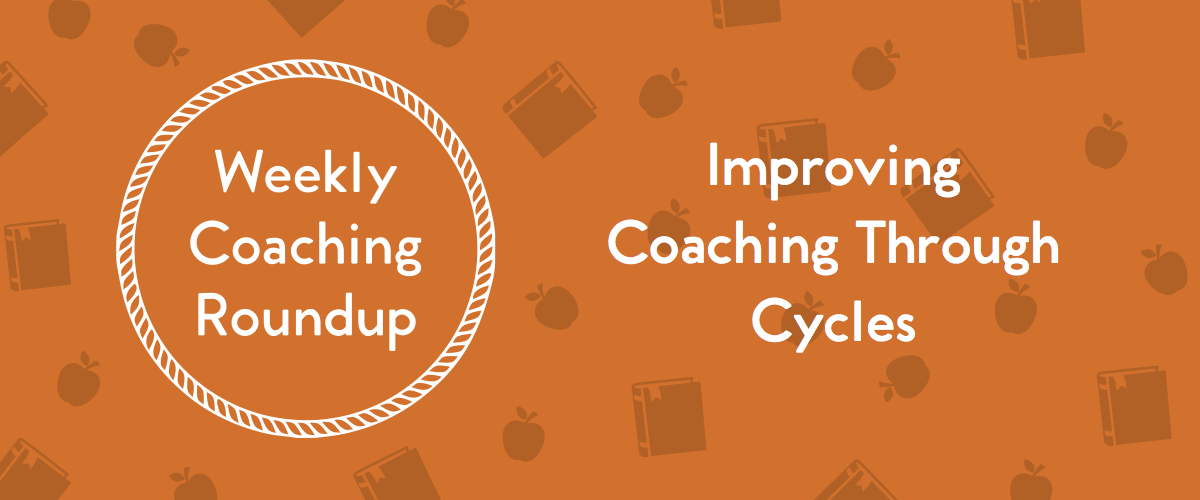


TeachBoost’s Weekly Coaching Roundup is our hand-picked list of first-person perspectives, resources, and tools from instructional coaches, delivered every Wednesday! Here’s our latest roundup focused on utilizing coaching cycles to better coaching.
If you’d like to stay up to date on coaching news be sure to subscribe to our weekly roundup below!
{{cta(‘1623fdae-2dee-4cee-a003-34270e4a47e4’)}}
Supporting Teachers Through Instructional Coaching Cycles
Shawn Churchill shares her experiences using instructional coaching cycles filled with co-teaching, modeling, planning, and reflection opportunities.
“I noticed right from the beginning that the teachers were at varying comfort levels in regard to technology integration. Since I was only working with 8-9 teachers at one time, I was able to provide individualized support for each teacher.”
Checking in After a Coaching Cycle
Dianne Sweeney reflects on the importance of “integration” within a coaching cycle to monitor and reflect on your teachers growth.
“It’s important that we don’t view these conversations as being about holding teachers accountable. If we take this approach, then teachers will feel like we are judging or evaluating them. What they really need (and deserve) is someone to ask them how it’s going, think with them, and provide options for additional support. This will keep the partnership (and the learning) moving forward.”
My First Coaching Session
Billy Spicer cites effective communication and relationships as fundamental prerequisites for his coaching meetings and cycles.
“Often times the biggest roadblock to empathizing with others is the noise inside our own heads. Clearing the decks across a variety of levels, including emotionally and cognitively, truly allowed me to enter a coaching meeting ready to support the teacher with a renewed commitment to listen.”
The Coaching Cycle
Kenny McKee uses research-backed evidence to justify the impact coaching has on student achievement.
“There is still much research to be done, but studies that suggest that coaching has a positive impact on student achievement describe collaborations that I would characterize as coaching cycles. . . . According to available research, structured coaching cycles yield a significant impact on student learning.”
The Flow of a Coaching Cycle
Kristin Houser outlines the steps and attributes of a coaching cycle based on her research and experience.
“As a coach who has fully experienced the overwhelming feeling of just starting out, not really knowing how to ‘put it all together,’ and sifting through various books and resources to hep me find a clear answer… this is the resource I’ve been wanting to bring your way for a long while now.”
The Coaching Cycle: Before, During, and After
Ellen Eisenberg shares how collective problem-solving and collaboration through the “BDA” cycle helps promote quality instruction.
“The single most important quality of a coach is the ability to build strong, collaborative relationships. . . . Coaches following a pattern for supporting teachers through the BDA cycle of consultation provide a framework that helps define purpose, practice, and persistence.”
{{cta(’34b13594-505a-497a-8a75-16ae35acf14d’)}}
Have some interesting instructional leadership news?
Share it with TeachBoost and we’ll highlight it here!
Stay Connected
News, articles, and tips for meeting your district’s goals—delivered to your inbox.








